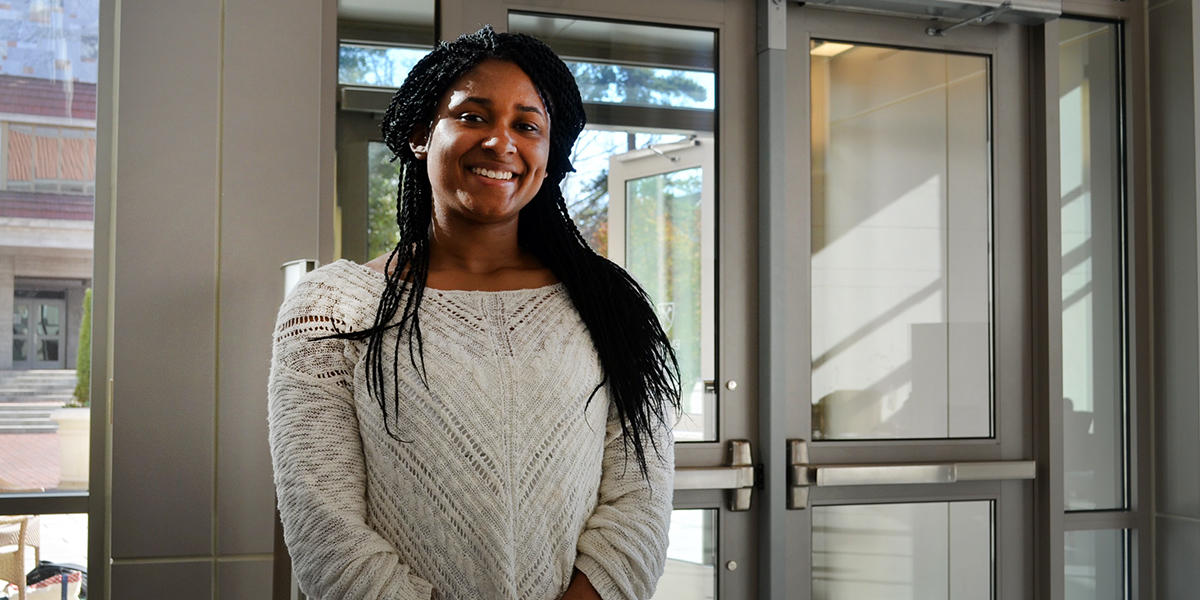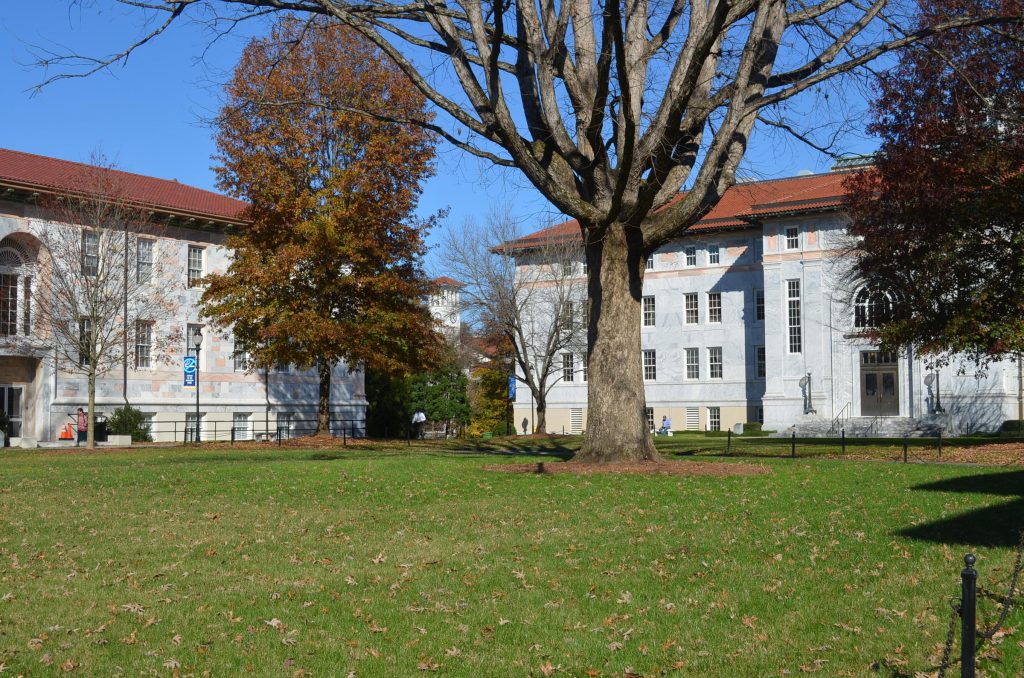Emory Considers Ban On Yik Yak App After Student Complaints

Emory junior Jasmine Jett said she opposes the idea of blocking any app, including Yik Yak, but if it makes others feel unsafe, that concern should be taken seriously.
TASNIM SHAMMA / WABE
Emory University says it will set up a task force to look at the feasibility of blocking a popular social media app called Yik Yak.
This is in response to demands from black student leaders who say it’s a breeding ground for hate speech against students of color on campus.
Yik Yak is an Atlanta-based social media app that’s now on more than 2,000 university campuses around the country.
It is someone in your geographical area, so you know the fact that you are in class with someone who really feels that they need to share a sentiment like: Black kids at Emory need to go back to Africa. -Manzi Ngaiza
With the app, you can anonymously post a comment or a “yak” and everyone in nearby ZIP codes can see, share and rate your comment with an up or down vote.
“It’s a forum for people to post anonymous thoughts, and some of those thoughts are potentially offensive to others. But at the same time, I mean, not that I’ve ever seen anything groundbreaking, like ‘Wow, what a great share!’ but sometimes some things are funny,” said Emory freshman Nikolai Yudin.
Mostly, you’ll find innocent jokes about bad breakups or awful dining hall food, but students at many college campuses — including Emory — have used it to make racist comments or death threats.
“For a while it was just kind of a light-hearted app,” said Kaya Ruffin, a sophomore at Emory.
But then trolls would take over.
She said they made it into “a medium for a lot of hate that’s very race-targeted and very gender-targeted, so it’s just kind of a downer. So I avoid it.”
Threatening Language
In October, a student at Emory’s Oxford College campus was arrested after she posted a message on the app threatening to shoot everyone.
Since then, black students in particular, like Manzi Ngaiza, have called for the university to block the app.
“It’s not like this is some kid on a YouTube channel,” Ngaiza said. “It’s someone in your geographical area, so you know the fact that you’re in class with someone who really feels that they need to share this sentiment of like … ‘Black kids at Emory need to go back to Africa’. It’s not a good feeling obviously.”
Geofencing
Some students really want Yik Yak to set up a “geofence” around the ZIP codes of Emory University and Oxford College.

Gartner’s Jason Wong, an expert at helping businesses develop mobile apps, said, “They call it fencing because it implies a boundary of some sort that’s based on location and whether you’re in the boundary or outside that boundary, you get a different experience.”
Geofencing often uses technology much more sophisticated than just GPS coordinates.
Location Technology
It’s used by advertisers when you’re inside a store to promote bananas on your phone when you’re in the produce aisle and it might nudge you to buy deodorant when you’re in the health and beauty aisle.
One way Yik Yak uses geofences is to block the app entirely at middle and high schools. That’s because it’s meant for users over the age of 17.
Wong said there are always workarounds when you block apps.
“I think it’s a much better policy to explore why people are using an application and maybe explain to people why they shouldn’t be using it as opposed to just simply blocking it,” Wong said.
Anonymous Platforms
Blocking Yik Yak from Emory is kind of like shooting the messenger. Senior Manik Soi said there are other platforms for students to post offensive comments.
“There are other things like Emory Secrets where people post such hateful stuff as well,” Soi said. “I don’t see the college banning that, right?”
Before Yik Yak and Emory Secrets, there was the College Anonymous Confession Board.
Wong said Emory can block the app on its WiFi, but even then, students can access it on their cellphone network.
Emory University said it doesn’t have a position on Yik Yak, but it will set up a task force on requesting a geofence.
Yik Yak declined to comment.








